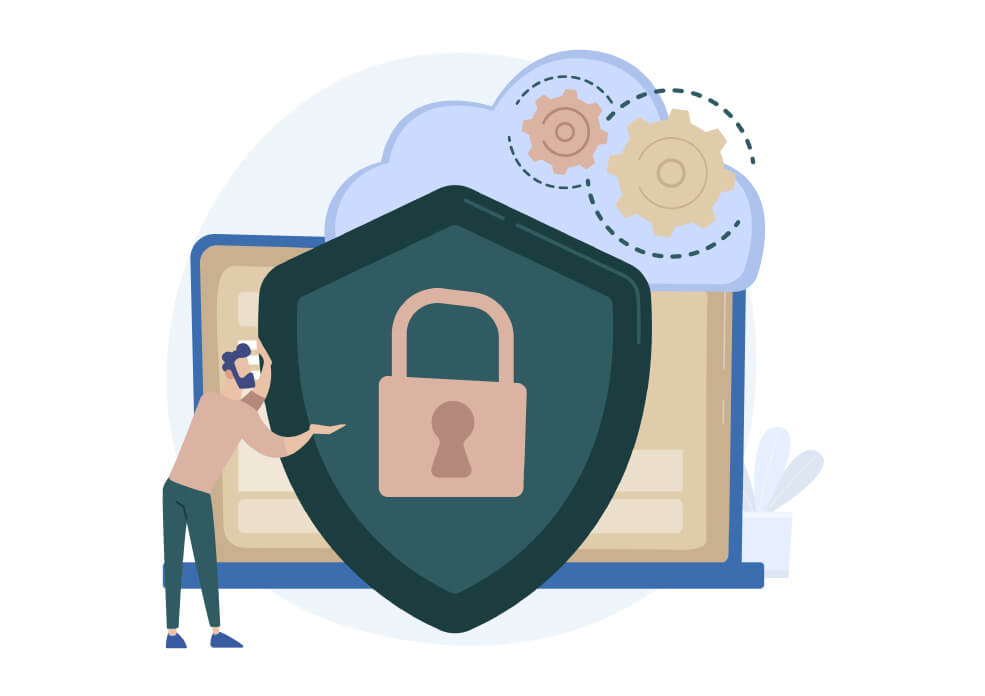
Have you ever temporarily lost your phone and feared all that was lost with it? Did you think about what could happen if the wrong person accessed your applications? When you found your phone (phew), did you start thinking about ways to protect all the cherished photos stashed on it? Or how to increase your data security?

There are about a million examples of why losing data can be detrimental, along with many ways to lose that data. Data is everywhere- from work documents to the games you play on your phone. It is estimated that 7.5 billion people will be creating data by 2030! We often think about what’s next on the to-do list in the day-to-day grind and not about things like backing up our data. But in all honesty, data backup should be incorporated into our daily agenda, especially with the world becoming increasingly digitized.
That’s right, humans make mistakes. Just to be clear, we always make the general assumption that you simply “misplaced” your phone; we won’t talk about the other possibilities (ahem, like giving your phone a first-class ticket to the toilet bowl).
Not only can devices like phones and laptops be lost, but they can be stolen as well. In the United States, a laptop is stolen every 53 seconds. Not only is data lost, but data security is in the hands of a thief.
Then there’s always the scenario where the wrong thing was deleted, or someone inadvertently downloaded a virus. These kinds of things are the reasons backup plans are created!

Cybercriminals are out there, and they are constantly learning new ways to make money. All too often, data is compromised, and businesses have no choice but to pay the criminal who is holding information hostage. Businesses are attacked by ransomware every 11 seconds. By 2031, that number is expected to be 2 seconds. Not sure about you, but we can’t even make a decision about what to get for lunch in 11 seconds, let alone 2 seconds.
Not only is ransomware becoming more and more of a threat, but the cost of dealing with it is also increasing. In 2015, over $325 million went towards dealing with attacks throughout the world. By the end of 2021? $20 billion. By 2031, the cost is expected to increase 13 times the 2021 figure: $265 billion.
Unpredictable and often inevitable problems can occur that can cost you data, time, and money. This can be anything from a power surge or hardware overheating. Hardware failure also includes things like flooding and other environmental factors that could harm your devices (especially at an office). Many random and uncontrollable factors could do more harm if you don’t have a proper backup plan.
Quickly recover and restore: First, let’s talk about the difference between recovering and restoring data. Restoring allows you to retrieve a copy of the data; a recovery is a group of processes that retrieve the data and make it usable. When it comes to your business (and life), you would probably prefer to use data once again (not just have it). The quicker your business recovers the data, the faster things return to normal. A better backup system means less downtime and losing less money.
Audits: Yeesh. Even spelling out the word audits makes us cringe. However, we all have to deal with them. If your data isn’t appropriately backed up, you’re risking losing pertinent documents and databases to show in an audit. Not passing could quickly put you out of business! It’s always better to be safe than sorry.
Protect what’s irreplaceable: Let’s refer back to the introduction- losing your devices could mean losing a lot more than money. No one wants to risk losing precious things like family photos and videos. Backing up your data can mean you will have cherished moments for years to come.

In 2020, 1.7 MB of data was created every second! Currently, over 5 billion people use and store data on their devices and in the cloud. Ok, we can throw statistics at you all day, but here’s arguably the most important: Globally, there will be around 200 zettabytes of data stored by 2025! In other words, we create a lot of data. There must be somewhere we keep all this data, which means we need companies that carefully store and manage it.
If this post leaves you wondering why you don’t back anything up besides your car when you awkwardly drive over a cement parking barrier, you’re not alone: 30 percent of people have never backed up their devices! Thankfully, solutions like Skyvia are out there to tackle our backup data fears. Skyvia not only backs up your data daily but will take care of all your CRMS. So instead of stressing about individually backing up all your cloud storage solutions, hand it over to an option like Skyvia.
But in all seriousness, we hope this post has you asking the right questions and thinking about appropriate data solutions. If all of this seems foreign to you, you may be in a little trouble. More than likely, you just need to tweak a few things within your data management. And as always, if you find yourself completely overwhelmed, consider services like Skyvia to take a few things off your virtual plate! Good help isn’t always easy to find, but you have plenty of great options in this case.